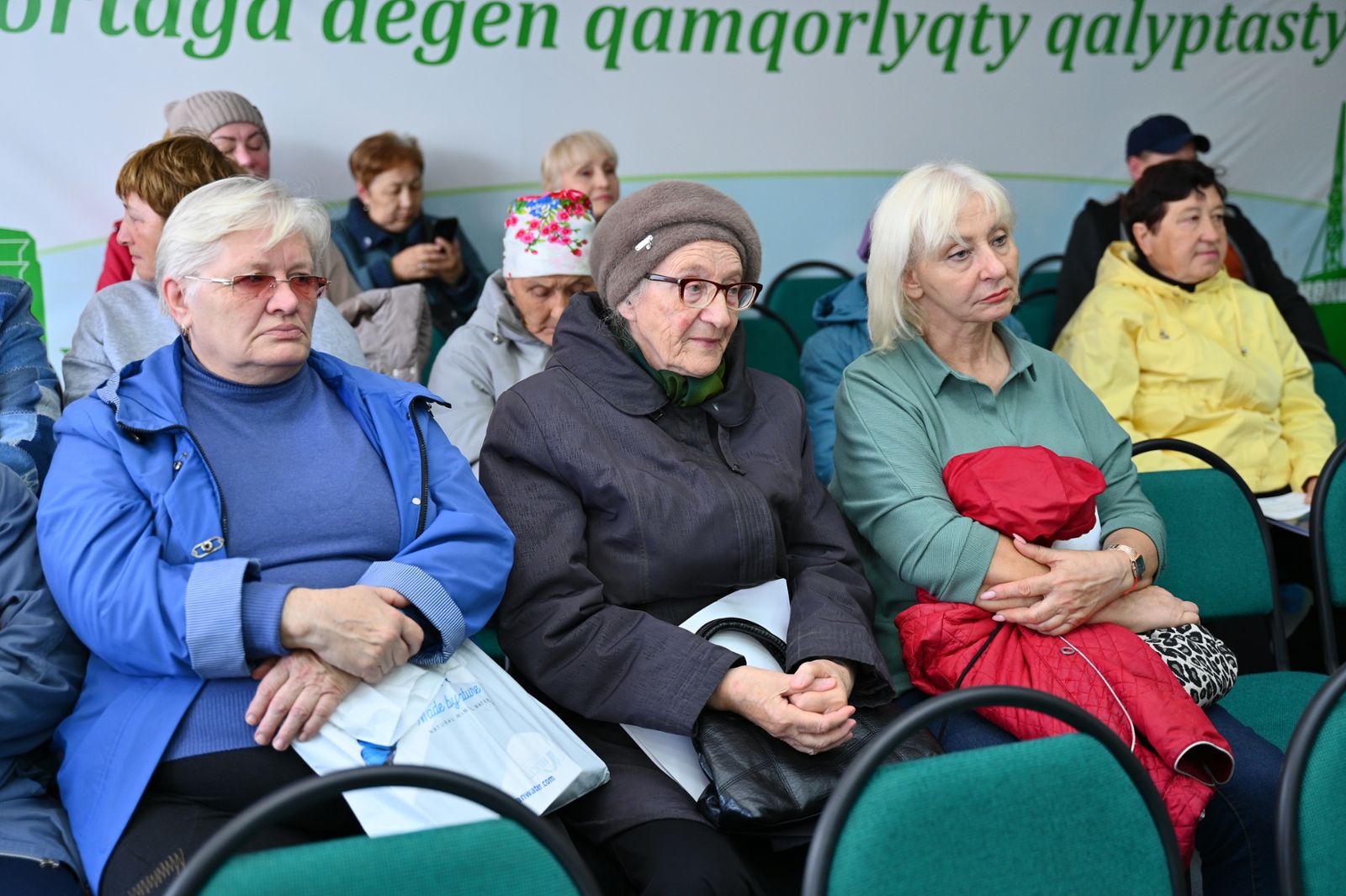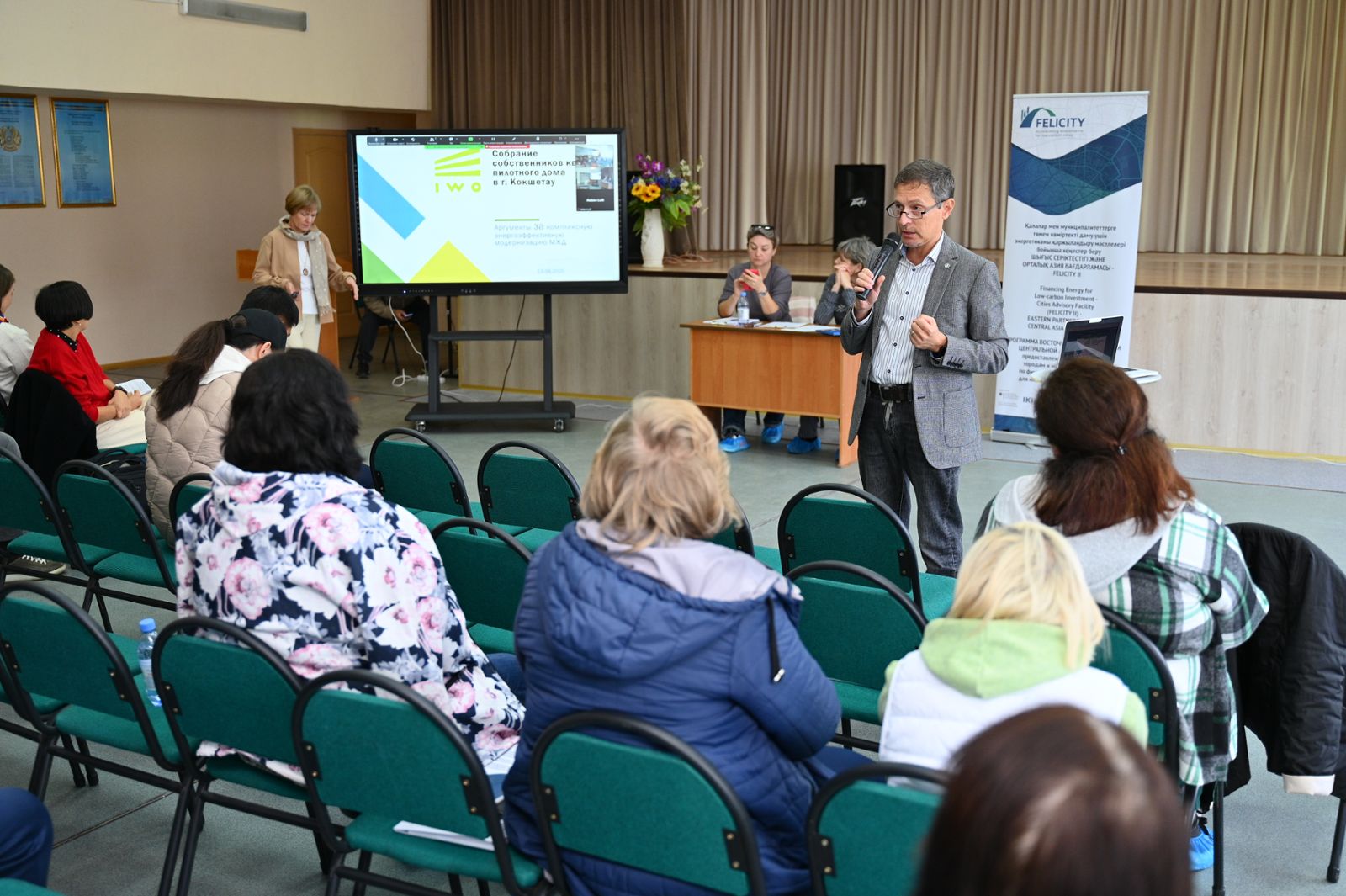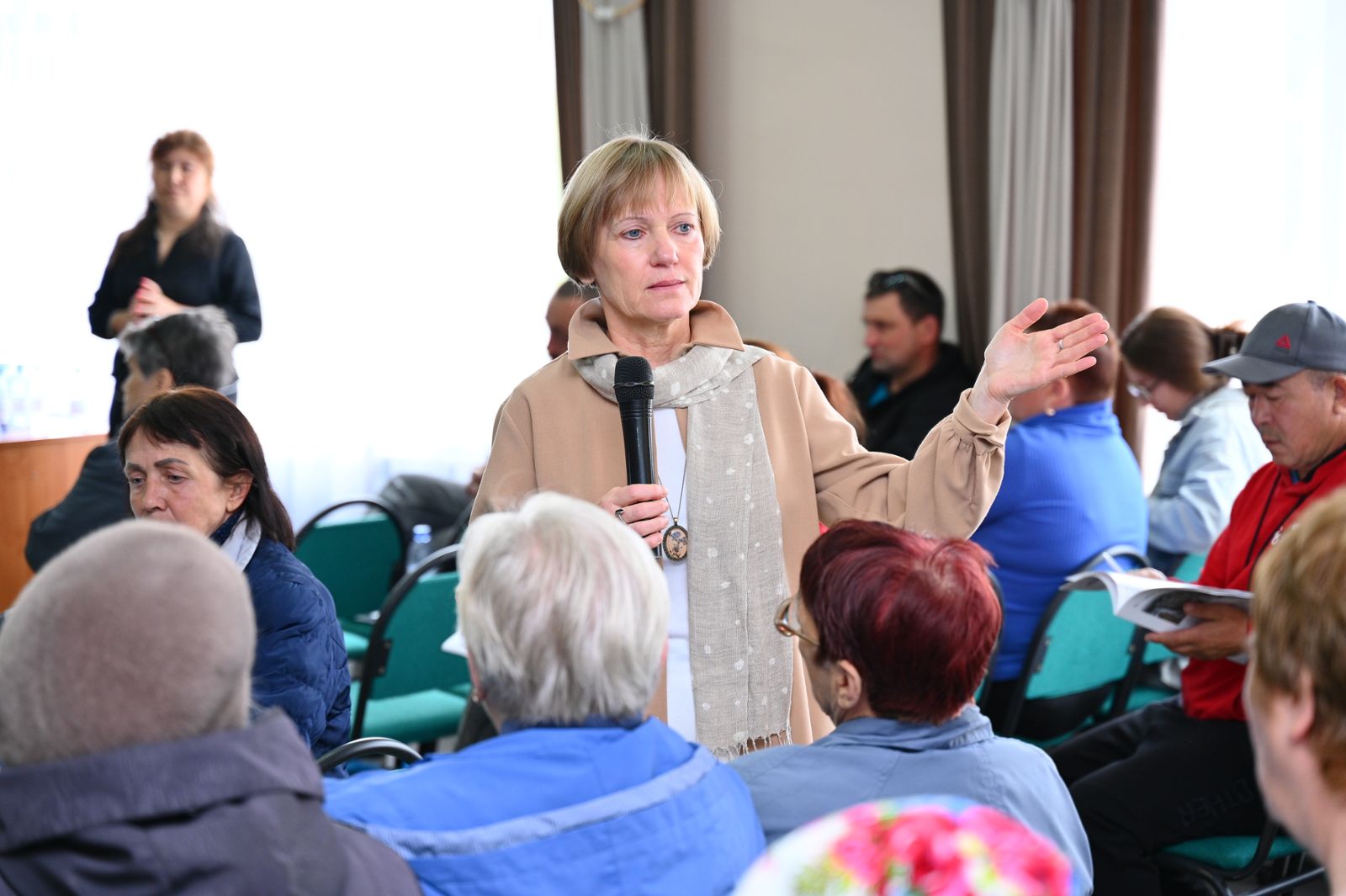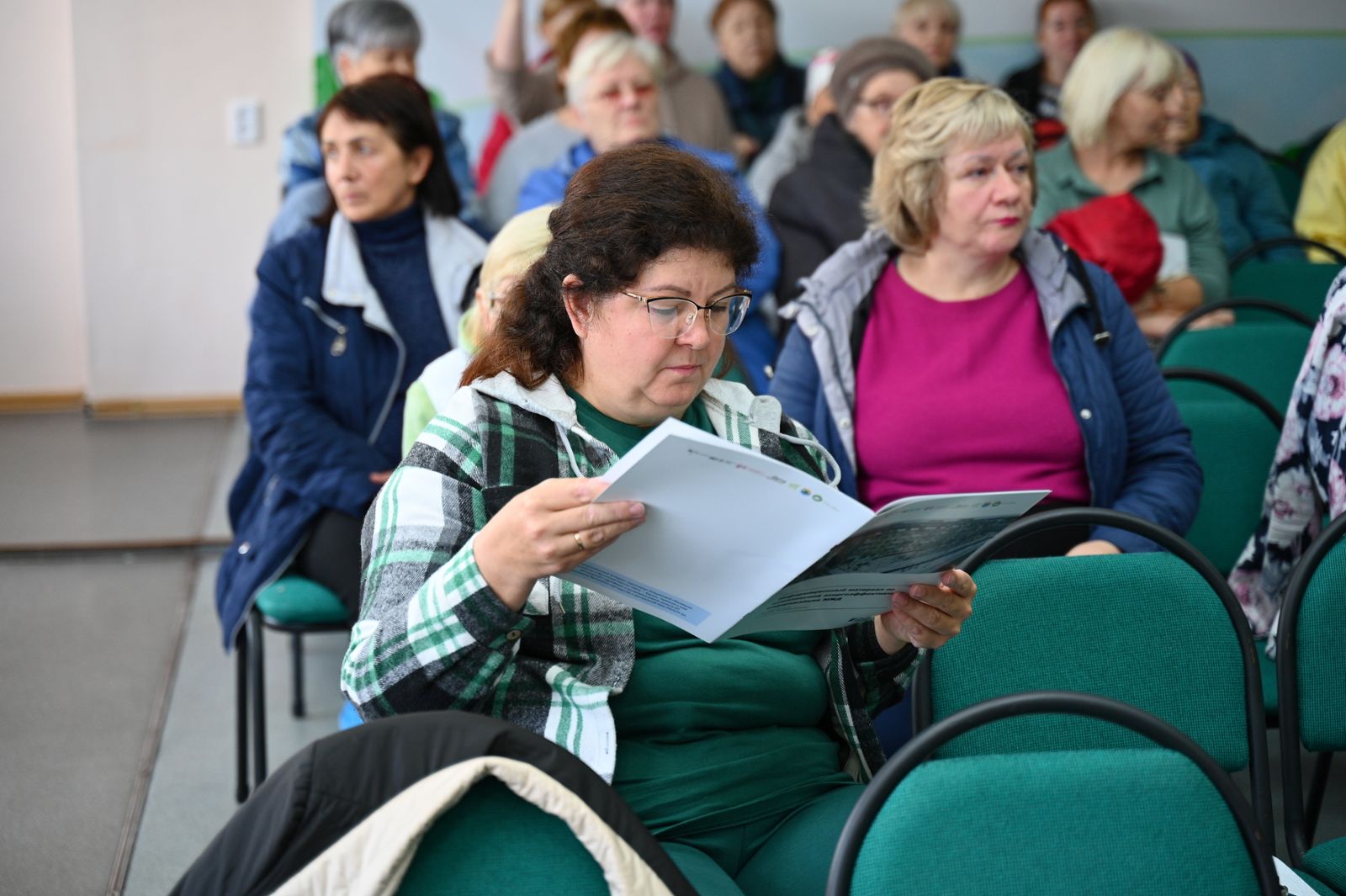News
News & Events
6 October 2025
Report - Press release
A meeting of homeowners was held in Kokshetau as part of the energy modernisation project
On 13 September 2025, another event was held in Kokshetau (Republic of Kazakhstan) with residents of a pilot building as part of the international FELICITY II initiative, which aims, among other goals, to implement comprehensive energy-efficient modernisation of residential buildings. The initiative is being implemented by the German Society for International Cooperation (GIZ) GmbH in cooperation with the European Investment Bank and with the support of the German Federal Government as part of the International Climate Initiative (IKI). Partners include the German Energy Agency (dena) and IWO e.V..

Photo 1: Participants at the pilot house meeting
Source: GIZ Kazakhstan
Earlier this year, a series of dialogue events was held in Kokshetau with residents, experts and representatives of the city authorities, where various aspects of energy modernisation, the experience of other countries with similar housing stock, the organisation of energy modernisation projects and possible co-financing models were discussed. The current meeting was a logical continuation of this process, bringing the homeowners in the pilot building to their first formal vote.
At the meeting, residents were invited to express their views on the following agenda: the comprehensive energy-efficient modernisation of their building, the possibility of participating in the state capital repair programme, and the approval of the project design documentation (PDD) with key construction activities and their cost. In consultations with representatives of the pilot building's board, the management company, and the city administration, IWO prepared a brochure of informational materials with detailed explanations, approximate calculations, and real-life examples. This brochure was distributed to residents in electronic and printed formats prior to the meeting to help them make an informed decision.

Photo 2: Presentation to meeting participants
Source: GIZ Kazakhstan
According to the meeting agenda, experts from IWO, GIZ, dena and the architectural bureau ArkhiKom presented arguments in favour of modernisation, the results of the preparatory phase and the technical parameters of the design solutions. Representatives of the Kokshetau city administration also provided explanations on options for supporting socially vulnerable residents. The question of including the building in the state capital repair programme sparked lively discussion among the participants leading though to no overall decision.
"We see that we need to provide residents with even more information and give them the opportunity to calmly understand all the details. In our experience, such modernization projects practically take longer than originally planned. But this is a normal process: the better people understand what to expect, the higher the chances of successful implementation of the project," said Larissa Schreckenbach, IWO project manager.

Photo 3: Larissa Schreckenbach with meeting participants
Source: GIZ Kazakhstan
In accordance with the Kazakhstan legislation, the voting procedure was continued in the form of a door-to-door survey, which was completed within two weeks of the meeting. The results for all three items on the agenda were as follows: 9 votes in favour, 56 against and 5 abstentions.
This decision by the residents was decisive for the further implementation of the project, the technical examination of the PDD and the search for additional funding. This stage is of particular importance, as for Kazakhstan it was the first experience of formal voting by residents on participation in comprehensive energy-efficient modernisation. Regardless of the outcome, the development of this topic in the city has good potential for continuation.
"Despite the results of the residents' vote, we believe it is important to continue our efforts to promote energy-efficient approaches to modernising the housing stock. The detailed project design documentation prepared for the pilot building can be used by its residents in the future and serve as a basis for similar projects in other cities where there is interest in the energy modernisation of residential buildings. We stay open to dialogue and look forward to continuing our cooperation," emphasised Dana Yermolyonok, the head of the FELICITY II project component in Kazakhstan.

Photo 4: Meeting participants study information materials
Source: GIZ Kazakhstan
Overall, the experience gained in Kokshetau is important not only for the residents of the pilot building themselves, but also for other Kazakhstan cities. The aim of the FELICITY II initiative remains to show that comprehensive energy-efficient modernisation makes it possible to improve the quality of housing, reduce energy consumption and contribute to climate protection. The successful implementation of such projects is only possible through the joint efforts of residents, local authorities and international experts willing to share their experience and properly adapt it to local realities.
For more information and media enquiries, please contact Larissa Schreckenbach.